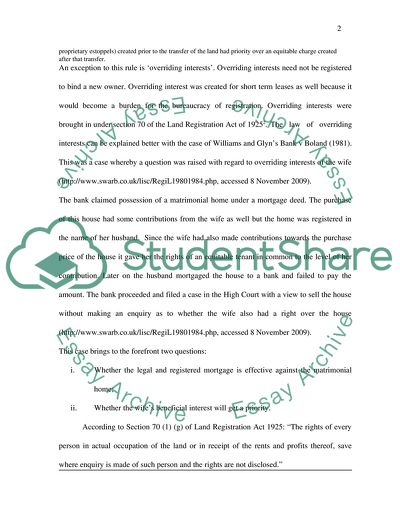Cite this document
(English Banking Law: Did the Case of Horsham Killed the Case of Boland Study, n.d.)
English Banking Law: Did the Case of Horsham Killed the Case of Boland Study. Retrieved from https://studentshare.org/law/1729328-english-banking-law-did-the-case-of-horsham-killed-the-case-of-boland
English Banking Law: Did the Case of Horsham Killed the Case of Boland Study. Retrieved from https://studentshare.org/law/1729328-english-banking-law-did-the-case-of-horsham-killed-the-case-of-boland
(English Banking Law: Did the Case of Horsham Killed the Case of Boland Study)
English Banking Law: Did the Case of Horsham Killed the Case of Boland Study. https://studentshare.org/law/1729328-english-banking-law-did-the-case-of-horsham-killed-the-case-of-boland.
English Banking Law: Did the Case of Horsham Killed the Case of Boland Study. https://studentshare.org/law/1729328-english-banking-law-did-the-case-of-horsham-killed-the-case-of-boland.
“English Banking Law: Did the Case of Horsham Killed the Case of Boland Study”. https://studentshare.org/law/1729328-english-banking-law-did-the-case-of-horsham-killed-the-case-of-boland.


